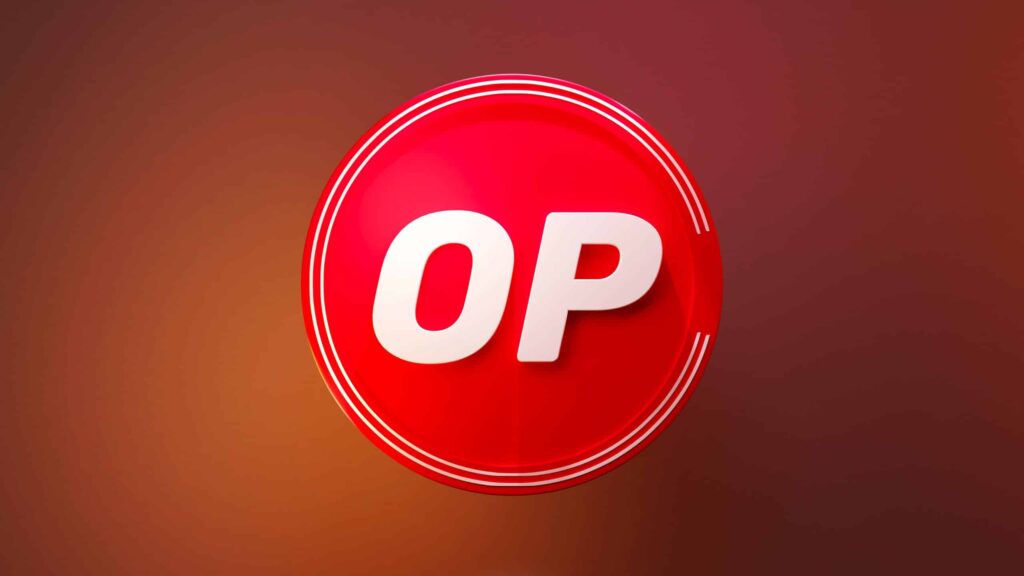
The program’s shorthand was originally named “RPGF,” which stood for “Retroactive Public Goods Funding,” but in the fourth funding round, the shorthand was renamed to just “Retro Funding.”
Optimism says the name change was made to improve clarity and accessibility to the blockchain for newcomers to crypto.
(Shutterstock)
Posted March 29, 2024 at 5:03 pm EST.
Optimism’s fourth round of retroactive funding, a popular mechanism to reward crypto projects based on current impact instead of speculative future impact, has drawn criticism from those disappointed by the lack of emphasis on public goods, as well as the lack of community input into various changes.
Initially called the “Retroactive Public Goods Funding” or “RPGF” for short, the initiative is now referred to as “Retro Funding,” a change that excludes the “public goods” element of Optimism’s initiative to reward developers, businesses, and educators for their contributions to the layer 2 blockchain network built on Ethereum.
While some expressed excitement over Optimism’s announcement to allocate 850 million OP tokens worth more than $3 billion for its fourth round, some, like Lefteris Karapetsas, the founder of portfolio tracking service Rotki, found the deviation away from public goods “appalling.”
Read more: What Is Retroactive Public Goods Funding?
“As someone who was attracted into this to fund public goods, I feel cheated by both the change itself and the arbitrary way with which it was decided unilaterally by the Foundation,” wrote Karapetsas in Optimism’s forum discussion about the design of the most recent funding round.
“Was it just a meme to pull us all in, have good marketing for the superchain [the name of the network of blockchain that rely on Optimism’s OP stack] and then when that’s accomplished, we just throw the public goods out?,” asked Karapetsas.
Optimism’s Reasons
According to Lynette Nolan, the head of communications for Optimism Unlimited, a subsidiary of the Optimism Foundation, the shorthand change from “RPGF” to “Retro Funding” was aimed at improving clarity and accessibility to the program for newcomers in the crypto ecosystem. The Optimism Foundation is the nonprofit dedicated to supporting the layer two blockchain, the second largest by total value locked.
Read more: What Are Sequencers in Layer 2 Protocols Such as Optimism, Arbitrum, and Base?
In an email to Unchained, Nolan said, “After conducting research and gathering inputs from small focus groups, we found that ‘RPFG’ was primarily accessible and understood by contributors already within the Optimism ecosystem. The shorthand description makes it easier for the community to describe the program at a high level for newcomers.”
However, some in the community did not agree with the change.
“The timing of this – during the rise of degen financial nihilism – is particularly disheartening, effectively eliminating a pillar of the Regen vision that Optimism pioneered… Now, to my eye, the [funding round] is virtually indistinguishable from any other L2s, except with [a] slightly unique retroactive part,” Paul Dylan-Ennis, assistant professor in the College of Business, University College Dublin, wrote in the forum discussion. “Regen” is short for “regenerative” and is often used as a contrast to “degen,” crypto parlance for a trader who takes extremely high risk.
Lack of Community Input
Additionally, a few noted how the details of the most recent funding round were largely decided by the Optimism Foundation.
Read more: Optimism’s Fourth Airdrop Recognizes NFT Creators in the Ethereum Ecosystem
The decision to exclude public goods in name was not “properly ratified by the OP community,” said Tim Daub, the founder of web3-focused Kiwi News, in the user forum. “The program was formerly explicitly focused on public goods, and the community hasn’t been given an opportunity to have a say in this switch in narrative.”
As a result, some have criticized the latest funding round for its lack of decentralization. Another person, who goes by latruite.eth, also indicated in the user forum to having “mixed feelings” about the fourth retroactive funding round.
“First and foremost, it’s sad that this was not voted on, at least part of it, by the Collective… What’s the point of putting so much energy and care into decentralized [governance], if it’s for the Foundation to impose (practically) all the details,” latruite.eth asked.
Optimism’s Nolan said that while “public goods” is not in the shorthand name anymore, “supporting public goods remains core to Retro Funding’s mission.”
OP, the native governance token for Optimism, has decreased 2.4% in the past 24 hours to $3.61, data from CoinGecko shows.
Powered by WPeMatico



